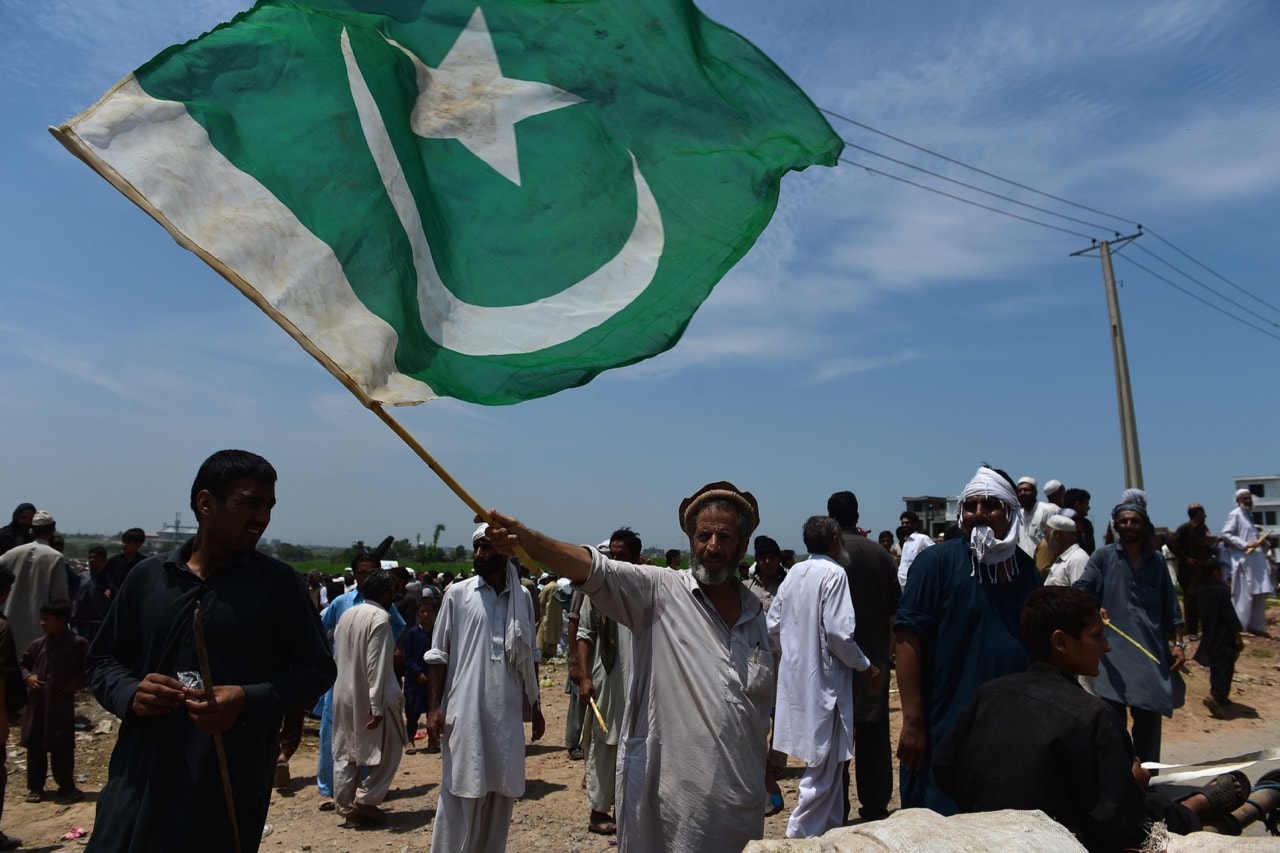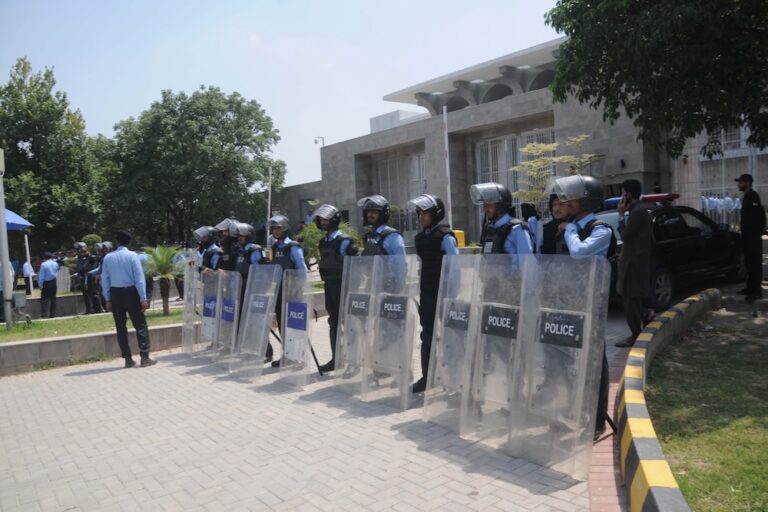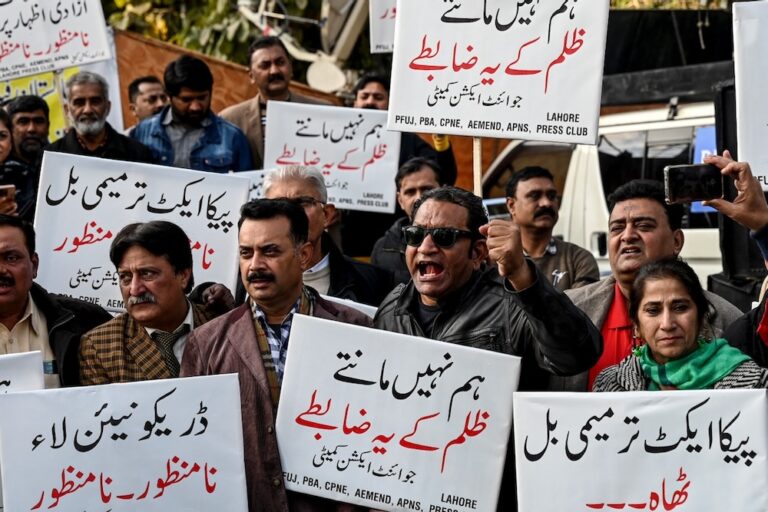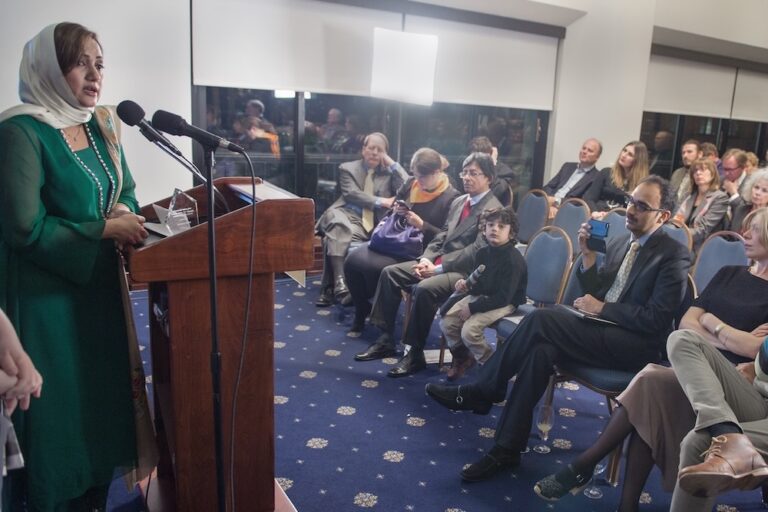More than 50 journalists sign a petition condemning the rising cases of censorship in the country.
This article was originally published on rsf.org on 20 April 2018.
Yesterday, after this exceptionally bad week for free speech in Pakistan, more than 50 journalists launched a petition condemning the latest cases of censorship. In particular, they criticized several media outlets for refusing to cover subjects that the military does not want addressed.
The latest subject to be placed off limits is the Pashtun Tahafuz Movement (PTM), which has been organizing protests in defence of Pakistan’s Pashtun minority and denouncing human rights violations by the military targeting Pashtuns.
For the first time in ten years, the management of The News, Pakistan’s biggest English-language daily, has censored three of its contributors for editorial pages. It refused to publish an editorial by Mosharraf Zaidi, who wanted to start a debate about the PTM. Then it refused to published an article on the same subject by the columnist Babar Sattar.
Finally, an article by Khan Zaman Kakar about the PTM was removed from the newspaper’s website on 15 April on the orders of the management of the Jang media group, which owns The News and Geo TV, whose network of TV channels were blocked by cable operators at the start of April, allegedly at the military’s behest.
It was reported yesterday that cable operators had finally restored Geo TV’s channels after a deal was reached in negotiations between the Jang management and the “establishment,” a widely-used euphemism for Pakistan’s military.
“The media are reduced to censoring themselves in order to be able to continue operating,” said Daniel Bastard, the head of RSF’s Asia-Pacific desk. “This crude blackmailing of the management of Pakistan’s media is yet further evidence, if any were needed, of how the military operates behind the scenes in order to silence journalists who annoy Gen. Bajwa’s army staff.
The behaviour of the military recalls the worst times of Pakistan’s dictatorships and is seriously undermining democratic practices. With just months to go until the next general elections, it is high time to allow journalists to lead the public debate with complete freedom, failing which Pakistan will lose all international credibility.”
“Deep state”
In another remarkable case of censorship, Pakistan’s TV channels intermittently turned the sound off during their coverage of the speech delivered on 16 April by Nawaz Sharif, who was removed from office as prime minister by the supreme court in July 2017.
The Punjab province high court had issued a decision the same day calling on the broadcast media regulatory authority to censor any statements by Sharif or his daughter, Maryam, that were critical of the judiciary. The chief justice of the supreme court assured the media that the ruling had no coercive value, but broadcasters nonetheless opted to comply and to censor themselves by turning off the sound during every sensitive passage of Sharif’s speech.
In recent weeks, Sharif and his daughter have been accusing the military of clandestine interference in the civilian government and of trying to exercise close control over the upcoming general elections.
With its allies in the judiciary, the Pakistani military is often described as a “deep state,” as an unseen decision-making entity that imposes its will outside of all formal legal and civilian authority and tolerates no independent journalism.
Pakistan is ranked 139th out of 180 countries in RSF’s 2017 World Press Freedom Index.



